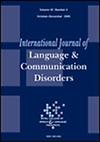The Daily Experience of Family Members Caring for Persons With Chronic Oropharyngeal Dysphagia: A Qualitative Investigation
Abstract
Background
Appropriate management of chronic oropharyngeal dysphagia (OD) requires a family-centred approach. However, limited information is available on the challenges and resources perceived by informal caregivers who assist individuals with chronic OD.
Aim
To investigate the daily challenges and resources reported by informal caregivers of persons with chronic OD, in order to identify critical aspects requiring implementation through healthcare services.
Methods
Eighteen Italian informal caregivers (age 54.2 ± 12.9; 61% female) assisting adults with chronic OD participated in a qualitative study based on a modified framework analysis approach. Care-related challenges and resources were investigated through semi-structured interviews. Two clinical researchers transcribed and coded the interviews, elaborated a working analytical framework, indexed and charted the data. Discrepancies were solved through negotiated agreement and discussion with a third academic researcher. Proportion agreement on extracted quotations was computed.
Results
Interviews generated 360 quotations (86% agreement). Specific OD-related challenges emerged in various domains: practical (meal management, food availability and preparation, daily planning), informational, psychological (coping strategies, caring burden, acceptance of their care recipients’ condition, psychological support) and social (change in social roles, care recipient's well-being, social acceptance of OD, social support). The majority of participants identified OD-related problems (n = 17, 94%) and obstacles in healthcare services use (n = 12, 67%); almost half reported care needs (n = 8, 44%). Regarding resources, most participants referred to coping strategies (n = 17, 94%), personal capabilities (n = 17, 94%), support from family (n = 14, 82%) and healthcare services (n = 14, 78%).
Conclusions
Findings suggest that caring for a person with chronic OD prompts personal and social challenges and resources, besides practical and informational issues. Further research is needed to better understand the determinants and dynamics of caregivers’ positive adjustment and promote a comprehensive family-centred care, overcoming the disease-centred view of caring, primarily focussed on providing information about meal management, clinical issues and related aspects.
WHAT THIS PAPER ADDS
- Family-centred approaches involving informal caregivers have been advocated for chronic oropharyngeal dysphagia care. However, limited information is available on informal caregivers’ daily challenges and resources.
- Caring for a person with chronic oropharyngeal dysphagia may prompt personal and social challenges and needs beyond those related to clinical and practical knowledge about effective management of the care recipients’ condition.
- A broad set of personal and social resources was identified in adjusting to the caring role.
- Positive adjustment to the caring role was observed in chronic oropharyngeal dysphagia care, but its determinants and dynamics require further investigation.
- Family-centred care approaches for chronic oropharyngeal dysphagia should assess informal caregivers’ multifaceted challenges and address them building on caregivers’ personal and environmental resources.

 求助内容:
求助内容: 应助结果提醒方式:
应助结果提醒方式:


